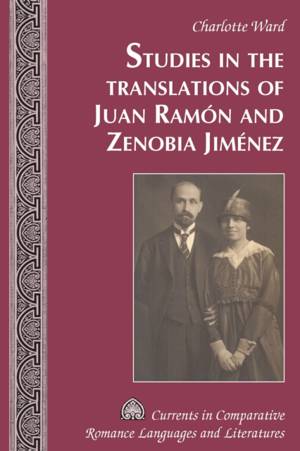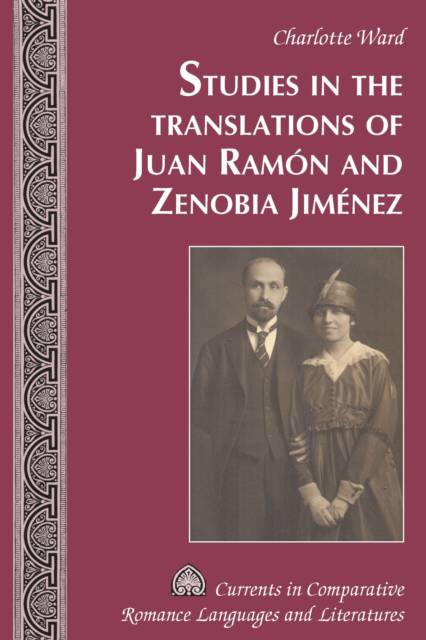
- Afhalen na 1 uur in een winkel met voorraad
- Gratis thuislevering in België vanaf € 30
- Ruim aanbod met 7 miljoen producten
- Afhalen na 1 uur in een winkel met voorraad
- Gratis thuislevering in België vanaf € 30
- Ruim aanbod met 7 miljoen producten
Zoeken
Omschrijving
The translations by Juan Ramón Jiménez, first resident of the Caribbean to win the Nobel Prize for Literature, have been neglected, likely because many of them were published under the name of his wife, Zenobia Camprubí Aymar, along with many of his poems. Close analysis of the style, along with personal letters and diaries, reveals his significant participation in these works. The translations were a crucial source of psychological and financial support during the long exile from Spain after the Civil War. Other elements in the process were the Nobel-winners Rabindranath Tagore, William Butler Yeats, and André Gide. Intertextual incorporations from Shakespeare, the King James Bible, Rubén Darío, and Ezra Pound are noteworthy, as Juan Ramón and Zenobia maneuvered between the Symbolist and Imagist poetic movements, experimenting with different theories of translation, from Dryden to Jakobson. As Jiménez constantly revised his own work, hitherto unpublished annotations prove important to understanding this journey.
Specificaties
Betrokkenen
- Auteur(s):
- Uitgeverij:
Inhoud
- Aantal bladzijden:
- 116
- Taal:
- Engels
- Reeks:
- Reeksnummer:
- nr. 249
Eigenschappen
- Productcode (EAN):
- 9781433134913
- Verschijningsdatum:
- 2/03/2017
- Uitvoering:
- Hardcover
- Formaat:
- Genaaid
- Afmetingen:
- 150 mm x 226 mm
- Gewicht:
- 272 g

Alleen bij Standaard Boekhandel
+ 370 punten op je klantenkaart van Standaard Boekhandel
Beoordelingen
We publiceren alleen reviews die voldoen aan de voorwaarden voor reviews. Bekijk onze voorwaarden voor reviews.








